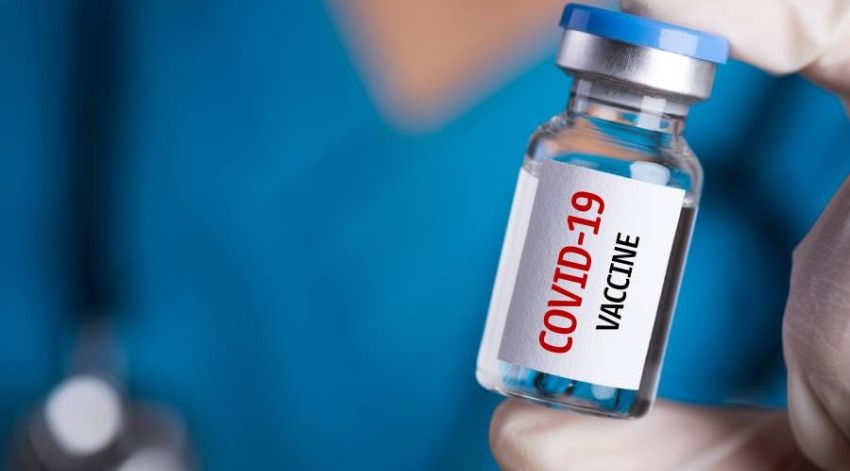In a new milestone, the UAE has administered more than 15 million doses of COVID-19 vaccines as part of its National Vaccination Programme. With this development, the UAE continues to hold its top rank in terms of vaccine distribution rate across the world.
On Saturday, the UAE's health authorities announced that a total of 103,196 vaccine doses were administered in the last 24 hours, taking the total to more than 15.04 million doses at a distribution rate of 152.10 doses per 100 people.
This achievement has come at a higher significance, noting the emergence of the more transmissible Delta variant of the COVID-19 virus across various countries. Last week, the WHO's COVID-19 epidemiological update revealed that the Delta variant has been reported in 85 countries worldwide, including a number of GCC countries (barring the UAE).
Global medical experts praised the UAE's management of the pandemic crisis since the beginning of the outbreak. The UAE implemented rapid RT-PCR testing, tracking and tracing app, world-class treatment, quarantine and isolation facilities, stringent precautionary measures and border restrictions with the aim to curb the spread of the virus. These efforts were strengthened by the best vaccination rate in the UAE.
However, the authorities have raised concerns over the new challenges posed by the Delta variant, noting that it is spreading rapidly - from 74 countries on June 8 to 85 countries on June 22. Even as no new variants have been reported in the UAE so far, doctors have affirmed that the threat from Delta and Delta Plus COVID-19 variant was a cause of concern.
Speaking on the matter, Dr Rajesh Kumar Gupta, specialist internal medicine at the Burjeel Specialty Hospital in Sharjah, said both variants are 40 percent more infectious, 100 percent more transmissible, and highly contagious.
"The variants pose greater risk of hospitalisations, affecting more in younger people, and more resistant to health controls and prevention measures," Dr Gupta added.
Doctors also highlighted the successful benefits of the UAE's vaccination campaign in "keeping the COVID-19 situation under control". In this regard, he noted that COVID-19 vaccines continue to be the most effective tool against any variant, including Delta and Delta Plus.
Dr Umar Majid, specialist pulmonologist at Al Ain-based NMC Specialty Hospital, underlined that the Delta variant was reported highly among unvaccinated individuals. Therefore, medical experts have encouraged everyone to get vaccinated to prevent infection and other serious health issues from COVID-19.
Dr Phalguna Kousika Katakam, specialist paediatrician at the Dar Al Shifa Medical Centre in Abu Dhabi, noted that vaccination can significantly reduce the chances of hospitalisation among individuals infected with the Delta variant.
"Complete vaccination with the currently available vaccines prevents hospitalisation even in the Delta variant. Whereas the Delta Plus is a more recent variant with a new spike mutation, and its effect is yet to be studied," Dr Katakam added.
Responding to questions related to the Delta Plus COVID-19 variant, Dr Gupta said the mutant variant appears to be escaping human immunity. He further highlighted the importance of vaccination to prevent infection from variants of the virus. Early mass vaccination along with isolation and strict measures to limit the virus spread continue to be the mainstay of prevention.
"The variant might be immune to the antibodies produced by vaccines or past-Covid infections produced antibodies or new monoclonal antibody cocktail," Dr Gupta added.
When asked how doctors are able to detect infection from Delta and Delta Plus variants among new patients, Dr Majid noted that fully vaccinated individuals will be the least affected by the mutated strains.
He explained that it is very difficult to determine on a clinical basis that a patient is infected by a different variant of Coronavirus, adding that suspicion is high among non-vaccinated, single-dose recipients, those who travelled outside the UAE and participate in any international events within or outside the country.
In addition, Dr Katakam hailed the UAE's ongoing efforts to vaccinate children aged 12 and above. Dr Katakam stressed the need for complete vaccination with two doses as the key to preventing any severity from future variants.
"Vaccines for 1-12 years is under study and hope to give positive results on the control of the pandemic and newer variants," Dr Katakam added.
Medical experts have also called on all unvaccinated members of the community to take the free vaccines as soon as possible. As of now, the UAE is offering the Sinopharm, Hayat-Vax, Pfizer-BioNTech, Sputnik V and Oxford-AstraZeneca vaccines to all eligible members along with the provision of booster doses to enhance immunity against the virus.
 AR
AR UR
UR
